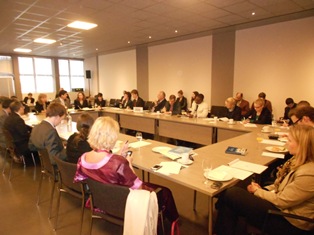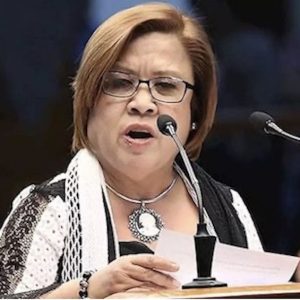Eleventh Session of the ICC Assembly of States Parties, The Hague, 17 November 2012
On the occasion of the 11th session of the Assembly of States Parties (ASP) of the International Criminal Court (ICC) in The Hague, No Peace Without Justice convened a side event on “Developing a Comprehensive Completion Strategy for the ICC”, co-sponsored by the United Kingdom, and which was held on 17 November 2012 (from 13:15 to 15:00), at the World Forum (room Oceania 2).The purpose of the meeting was to discuss the need for the ICC to develop a situation completion strategy as a critical element in enhancing its efficiency, effectiveness and ability to fulfil its mandate. The ICC is a permanent institution, but from the perspective of each situation, its engagement is transitory; it begins when ICC jurisdiction is triggered, it proceeds through preliminary examination, investigations, trials and appeals proceedings, but at some point it must end, its mission accomplished. Therefore, like the ad hoc tribunals, for each situation the ICC needs a Completion Strategy that sets out specific goals and targeted benchmarks for the fulfilment of its mandate and lays out the steps needed to conclude and complete its work.
On the occasion of the 11th session of the Assembly of States Parties (ASP) of the International Criminal Court (ICC) in The Hague, No Peace Without Justice convened a side event on “Developing a Comprehensive Completion Strategy for the ICC”, co-sponsored by the United Kingdom, and which was held on 17 November 2012 (from 13:15 to 15:00), at the World Forum (room Oceania 2).The purpose of the meeting was to discuss the need for the ICC to develop a situation completion strategy as a critical element in enhancing its efficiency, effectiveness and ability to fulfil its mandate. The ICC is a permanent institution, but from the perspective of each situation, its engagement is transitory; it begins when ICC jurisdiction is triggered, it proceeds through preliminary examination, investigations, trials and appeals proceedings, but at some point it must end, its mission accomplished. Therefore, like the ad hoc tribunals, for each situation the ICC needs a Completion Strategy that sets out specific goals and targeted benchmarks for the fulfilment of its mandate and lays out the steps needed to conclude and complete its work.

What are the elements of a comprehensive situation-completion strategy for the ICC? Could a result-oriented strategy help maximise the Court’s impact and effectiveness? What can the Court do now to complete and conclude existing situations? How can the Court approach its future work with a view to what will need to have been accomplished in each phase of the process, so as to be in a position to consider its work done and its mission accomplished? These are the questions that guided the discussion.Speakers included: Niccolò Figà-Talamanca, Secretary-General, No Peace Without Justice; Judge Ekaterina Trendafilova, Pre-Trial Division, International Criminal Court; Fidelma Donlon, Deputy Registrar, Special Court for Sierra Leone; Gabrielle McIntyre, President’s Chief of Staff and acting Legacy Officer, International Criminal Tribunal for the former Yugoslavia; Alpha Sesay, Legal Officer-International Justice, Open Society Justice Initiative; Silvana Arbia, Registrar, International Criminal Court.
- Flyer of the event
- Report of the event
- Special section dedicated to the 11th ASP to the ICC
NPWJ and the ICC
No Peace Without Justice, which is a founding member of the NGO Coalition for the International Criminal Court (CICC) and which has been one of the organisations at the forefront of promoting the establishment and entry into force of the permanent International Criminal Court (ICC) and continues to work for its universal ratification, has participated in every session of the ASP since its first session in 2002, the year the ICC was established.
For further information, contact Alison Smith on asmith@npwj.org or +32-2-548-3912 or Nicola Giovannini on ngiovannini@npwj.org or +32-2-548-3915




